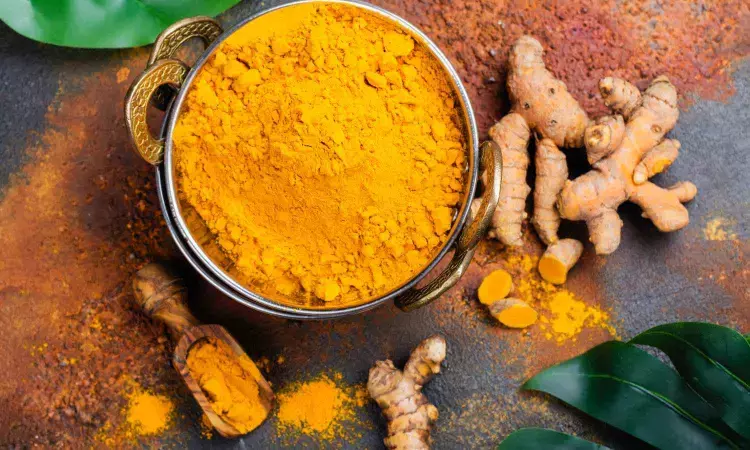- Home
- Medical news & Guidelines
- Anesthesiology
- Cardiology and CTVS
- Critical Care
- Dentistry
- Dermatology
- Diabetes and Endocrinology
- ENT
- Gastroenterology
- Medicine
- Nephrology
- Neurology
- Obstretics-Gynaecology
- Oncology
- Ophthalmology
- Orthopaedics
- Pediatrics-Neonatology
- Psychiatry
- Pulmonology
- Radiology
- Surgery
- Urology
- Laboratory Medicine
- Diet
- Nursing
- Paramedical
- Physiotherapy
- Health news
- Fact Check
- Bone Health Fact Check
- Brain Health Fact Check
- Cancer Related Fact Check
- Child Care Fact Check
- Dental and oral health fact check
- Diabetes and metabolic health fact check
- Diet and Nutrition Fact Check
- Eye and ENT Care Fact Check
- Fitness fact check
- Gut health fact check
- Heart health fact check
- Kidney health fact check
- Medical education fact check
- Men's health fact check
- Respiratory fact check
- Skin and hair care fact check
- Vaccine and Immunization fact check
- Women's health fact check
- AYUSH
- State News
- Andaman and Nicobar Islands
- Andhra Pradesh
- Arunachal Pradesh
- Assam
- Bihar
- Chandigarh
- Chattisgarh
- Dadra and Nagar Haveli
- Daman and Diu
- Delhi
- Goa
- Gujarat
- Haryana
- Himachal Pradesh
- Jammu & Kashmir
- Jharkhand
- Karnataka
- Kerala
- Ladakh
- Lakshadweep
- Madhya Pradesh
- Maharashtra
- Manipur
- Meghalaya
- Mizoram
- Nagaland
- Odisha
- Puducherry
- Punjab
- Rajasthan
- Sikkim
- Tamil Nadu
- Telangana
- Tripura
- Uttar Pradesh
- Uttrakhand
- West Bengal
- Medical Education
- Industry
Adding some spice- Curcumin helps treat mycobacterium abscessus, reports research

Mycobacterium abscessus is a fast-growing, pathogenic mycobacteria that can cause lung infections, and people who have respiratory conditions or are immunocompromised face a higher risk. It can also cause skin infections. The microbe is closely related to the one that causes tuberculosis and is naturally resistant to many antibiotics. Infections often require a year or more of a combination of drugs.
A study published this week in Microbiology Spectrum reports a potential way to improve treatment: Add a little spice. Researchers at Shanghai Jiao Tong University, in China, found that adding curcumin boosts the efficacy of bedaquiline, an antimycobacterial used to treat tuberculosis, in combating M. abscessus infections. Curcumin is the compound that gives turmeric its characteristic bright orange color.
“This low-toxicity natural product combined with existing drugs could pioneer new treatment pathways for resistant infections,” said microbiologist Zhe Wang, Ph.D, senior author on the study. “It’s particularly relevant in immunocompromised populations,” Wang added, who are more vulnerable to these infections.
Wang’s lab focuses on innovative approaches to treating infectious disease; those approaches include repurposing known drugs and finding ways to combine natural products with known treatments. They knew that treatment for M. abscessus often leads to poor outcomes—only about half of people who undergo treatment become non-infectious, according to previous studies. Bedaquiline is an antibiotic used to treat multidrug-resistant tuberculosis and has shown some promise in relieving symptoms of non-tuberculosis mycobacterial infections, including M. abscessus. However, the drug does not eliminate all the infectious microbes from a sample.
The researchers, searching for ways to boost the efficacy of bedaquiline, investigated curcumin, which has long been used in traditional Asian medicine to treat a wide variety of conditions. Previous pharmacological studies suggest that curcumin has protective effects against tuberculosis.
In lab studies, the researchers found that bedaquiline alone first inhibited the growth of M. abscessus, but the bacteria began to grow again after 2 weeks. The combination of the drug and curcumin, however, suppressed the growth and reproduction of the bacteria, suggesting that curcumin may act as an antibiotic resistance breaker. In mice, the researchers found that the drug combination slowed or stopped infection better than either compound alone, both in immunocompromised mice and those with a healthy immune system. “The combination demonstrates synergistic enhancement of antibacterial activity and improved infection clearance,” Wang said.
The researchers are now investigating the specific molecular targets that play a role in the mechanisms behind the effects of the combination therapy. They’re also evaluating the combination against other resistant mycobacterial strains and conducting safety assessment to prepare for clinical trials and, down the road, the development of new therapeutics. “This study highlights the innovative value of combining drug repurposing with natural products,” Wang said.
Reference:
Luo, D., et al. (2025) Curcumin enhances bedaquiline’s efficacy against Mycobacterium abscessus: in vitro and in vivo evidence. Microbiology Spectrum. doi.org/10.1128/spectrum.02295-24.
Dr Kamal Kant Kohli-MBBS, DTCD- a chest specialist with more than 30 years of practice and a flair for writing clinical articles, Dr Kamal Kant Kohli joined Medical Dialogues as a Chief Editor of Medical News. Besides writing articles, as an editor, he proofreads and verifies all the medical content published on Medical Dialogues including those coming from journals, studies,medical conferences,guidelines etc. Email: drkohli@medicaldialogues.in. Contact no. 011-43720751


